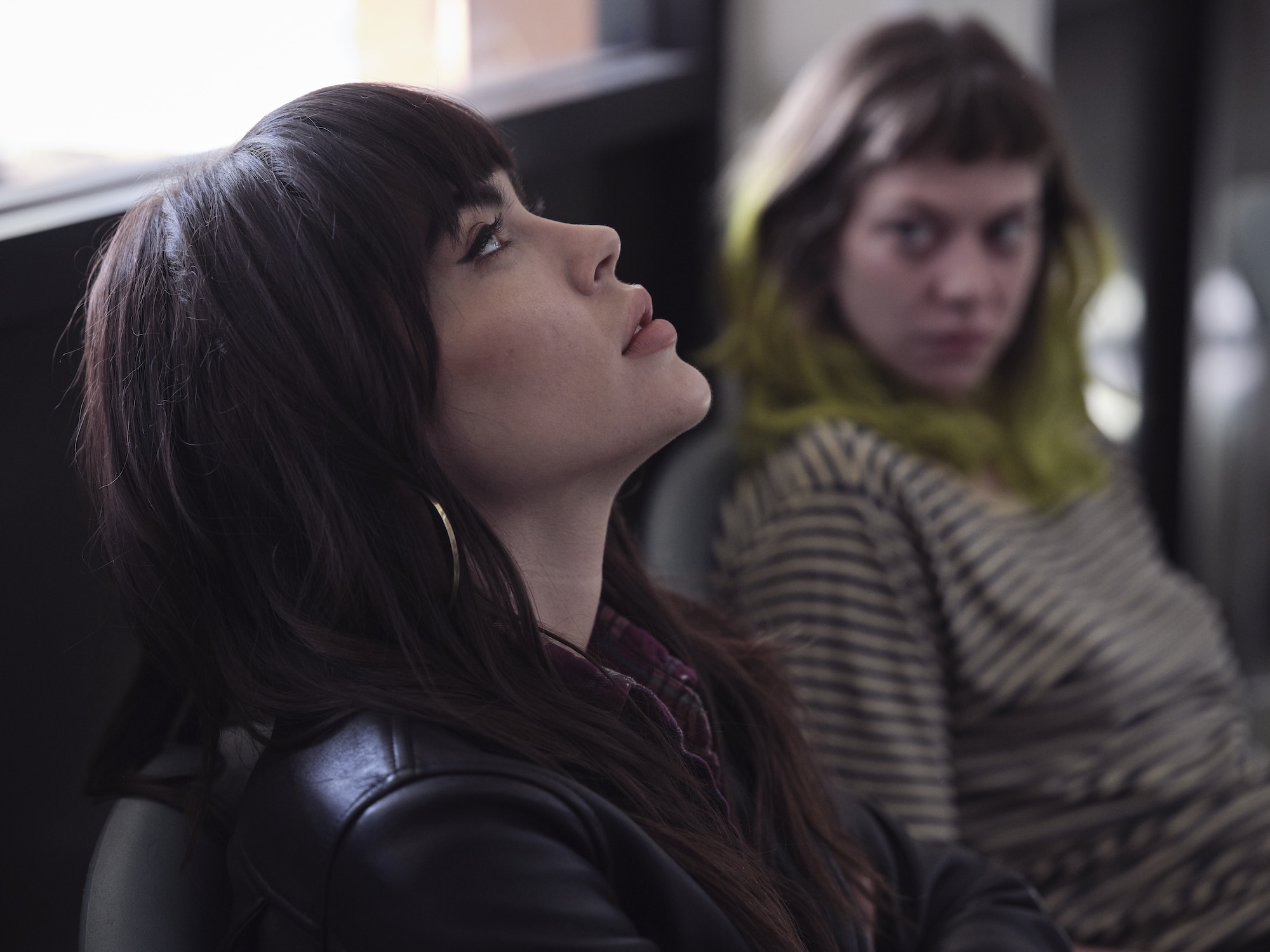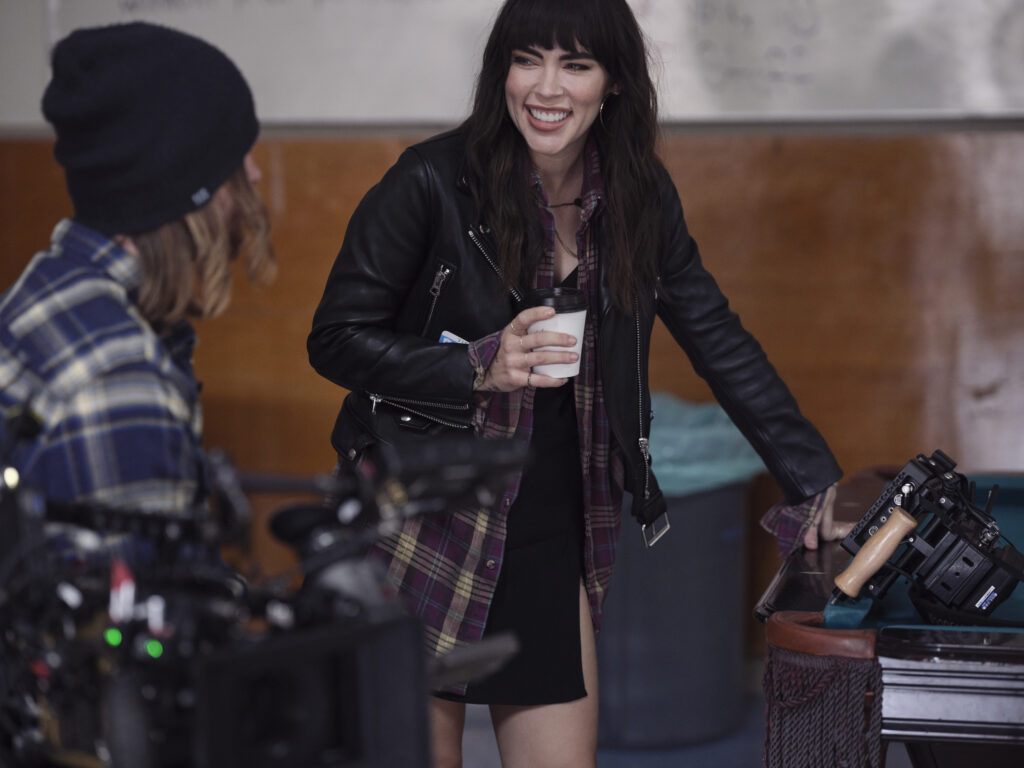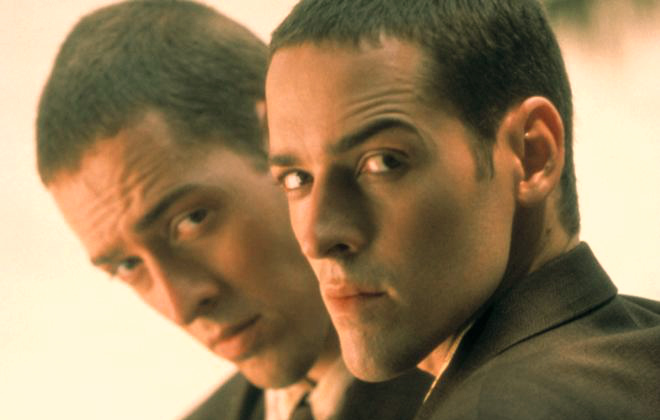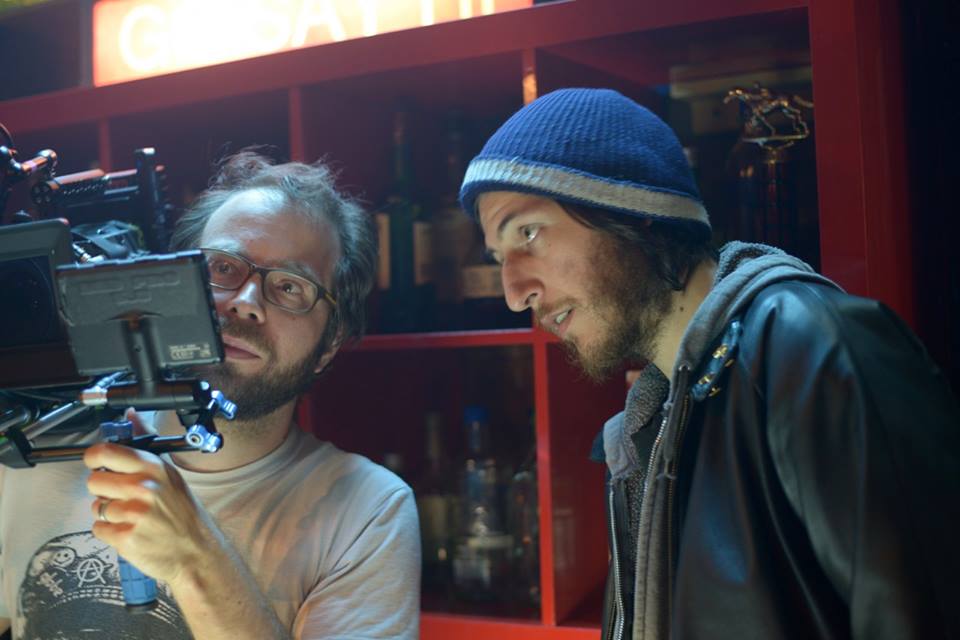It’s not uncommon for storytellers to dig into their personal lives for inspiration. It can be even more meaningful, however, when the past events being revisited are traumatic ones. That’s exactly what NADINE CROCKER decided to do when taking on filmmaking duties for her directorial debut. As an actor, she has appeared on TV shows including Supergirl and in films such as Cabin Fever, but Crocker had more to share and took the control of her next project into her own hands. The result: CONTINUE, a feature-length drama that she wrote, directed, and produced.
Crocker also stars in Continue as a woman picking up the pieces of her life following a suicide attempt. Lio Tipton, Shiloh Fernandez, Dale Dickey, and Emily Deschanel co-star in the film, which premiered at the 2022 Cinequest Film Festival. It then went on to screen at fests including Bentonville Film Festival, Beverly Hills Film Festival (where Crocker won the Best Actress prize), and Mammoth Film Festival (where Crocker won Best Director and Best Achievement in First Time Filmmaking). Since the film’s production, Crocker’s filmmaking career has continued to ascend. She directed the 2023 crime thriller Desperation Road, based on the Michael Farris Smith novel.
Lionsgate will release Continue in theaters, on demand, and digital on September 6, during National Suicide Prevention Month. We spoke with Continue‘s writer, director, producer, and star Nadine Crocker about getting this extremely personal story to the screen.
——
COLIN McCORMACK: As you were coming up as an actor, was writing and directing always part of the plan?
NADINE CROCKER: No, not at first. From a very young age, I knew I wanted to act. My dad was a country singer and I would watch his music videos and imagine me in the video being the girl who’s madly in love. Mind you, I’m five or six [laughs]. I started doing acting classes and all the things that are possible for a person who lives in Fresno. Then I dropped out of high school and moved [to LA] when I was 16 and have been here ever since pursuing this dream. When I was growing up, I didn’t know a woman could be a writer or director. I thought, You have to be in front of the camera. It’s only now when I look back that I’m like, What you were doing with all those music videos in your mind was telling stories. I’m realizing one of the things that drew me to become an actor all my life was also a little bit of writing and directing.
[Continue] is based on true events: A suicide attempt and one of the hardest years of my life. I found something I was so passionate about that I couldn’t not tell the story. At first, I was going to let someone else direct it because I felt like I couldn’t wear so many hats. I know that’s crazy, but I was looking for other people to give me permission. I do blame — and “blame” in the best way — Cassian Elwes, who is an EP on this film. He was an early mentor and mentored me through this entire process and he said, “You’ve made the mood boards, you’ve made the decks, you’ve raised most of the financing, you put your life savings into it. Why are you not directing it?” I just started ugly-face-crying because I didn’t think anyone would let me. He was like, “Let you? I don’t know anyone more qualified to tell this story.” And I walked out of there like, I’m going to freaking do it. I’m going to direct it. And then came the journey. I didn’t think I could breathe without acting, and I discovered my purpose on this planet is writing and directing, creating an impact, and talking about subjects that need to be talked about. I spent my whole life from 16 on pursuing acting, and now, pretty much my entire career is writing and directing. It’s funny how the universe leads you to different paths you don’t see coming.
CM: You talked about it being an overwhelming thought to wear so many hats. Was it as daunting in practice as it was in your assumptions?
NC: Yes. [Laughs] I’d love to say no, and it isn’t [daunting] in the ways that people think. A lot of people think, This person has attempted to end their life and been through these dark depths and it must have been horrendous to go back to them. It wasn’t as daunting in that way. It’s daunting because you don’t have enough money, you don’t have enough days, you have a million things and ideas you want to do and you have to focus. For me personally, it was the collaboration I built around me that made it all possible.
So, it didn’t feel as daunting because I had an acting coach [Steven Anderson] who was there supporting me while I was supporting others. I had a DP [Sy Turnbull] who worked with me for free for over a year to develop and come up with our shot list so that when we got there we would know exactly what we were doing. We drove to and from set together every day so we could talk about the next day on the drive home and the day ahead on the drive there. He would show up two hours early to walk through every single scene, every single shot, blocking all of it. Because then I was in hair and makeup the rest of the day and he literally wouldn’t see me in between. They’d bring the monitor to the makeup chair and I’d tell him to do this or change that or whatever it was.
I had such amazing support around me. My husband [Anthony Caravella] was one of my producers and our best friend Jay Seals was our other producer. We were surrounded by family and I felt very supported, which is how I got through it. There were definitely days — like where I simulated drunk so much that I was actually vomiting and then had to continue to direct and act — when you’re just like, “Oh my God, can I just take a nap?” Revisiting those [traumatic] places when you have support isn’t as scary because I knew I’d be okay.

CM: I always like to hear from actor/directors about their experience casting a film. As an actor and also writer, what was it like to have the control to build your team of scene partners and fill out the roles that you wrote?
NC: I think that’s probably the addicting part. I got these incredible actors around me that were so game and it’s such an addicting feeling to get to create with these people you respect so much. You create this little bubble of a family and you know each other inside and out and then you don’t know when you’ll see those people again. It was such a beautiful experience that all the time I’m like, Man, I hope I can recreate that dynamic.
I joke that it was the prisoners running the prison. We financed it and I put my life savings into this film, so there wasn’t anyone telling us what to do. We got to experiment, we improvised, and the best ideas won. As an actor/director, the directing didn’t just happen in the whispers that were said between takes. I could change my tactics of what I was doing in the scene, which would completely change the dynamic and change what they were doing. Sometimes I’d tell them we were going to do something one way and then I’d come at them in a completely different way. Being able to be across from them and direct them by how I delivered or approached something was one of the most fun things about directing this movie. A lot of them have gone on to work on my other film too, and will be in the next films that I’m casting.
I have a very distinct vision. I know exactly how I want it to look, how I want it to move, how I want the audience to feel, but I will also throw that out the goddamn window for an idea that the actor gives that I think is better. That’s the fun stuff and that’s what I hope other directors will allow actors to do. They are valid members of this collaboration and this creation. They’re wearing their skin and sometimes they really do know better. They might not know the vision of the take or the movement of the camera, but they know this [character]. One of my favorite scenes is when Lio’s character comes after I see my sister and I’m really upset in the room. Dale Dickey’s character tells her to get out of the room and she stands up and then sits down right outside the door. That was all Lio’s idea: “I wouldn’t leave you.” And I said, “Then please don’t.” That is what collaboration is.
CM: Do you think that will change how you act when working for different directors, now that you’ve been on the other side of it?
NC: I have not acted since I made Continue, which is a really weird thing for me to say. I’m normally in class every single week. Acting is a part of me and now that my schedule is clearing up, I was looking to get back in an acting class just to go play again. I definitely think about things in such a different way because I am primarily a writer/director now and I do wonder how it’ll be to just be an actor for someone in a movie. When I worked with Mel Gibson [on Desperation Road], I’m never going to not listen to his ideas, because he’s an amazing director. So I’m like, “Sure, give me your advice!” I do think it has changed how other people approach working with me. They want my opinion and that is such a different feeling because as an actor coming up, no one wants your goddamn opinion. They want you to stand there and say the thing and look pretty and do your job. There’s a joke for a reason when crew members and people call them meat puppets. There are people who actually believe that.
It’s a very different feeling now. Other directors have approached me about being in their films and they’re like, “Do you have notes on the script?” And I’m like, “I have a lot!” This is a weird feeling that people want my input now. People ask me all the time if I’ll go back to acting and the answer will always be yes, for the right role, for the right cause, for the right person. My goal, if I were to go back to acting, would be to learn from some of the greats I idolized since I was a very young girl. I want to know how they direct and I want to be on their set, even as a PA! I have no ego when it comes to that. I think it’s changed me on a molecular level, crossing over [to writing and directing], so I can’t just be an actor anymore.
CM: For any filmmaker, it’s exciting to share your vision with audiences. But since it is based on such a personal story, what was it like to see it resonate with audiences when you started to screen it at festivals and theaters?
NC: It’s the best feeling in the entire world because I had to fight really hard for this film. I had to fight for people to be open to the conversation of mental health and suicide prevention. A lot of people were too afraid to take on that subject matter. I just kept with the mantra, My audience will find me, my people will find me. I know and believe I was put on this planet for a reason and maybe even was given suicidal depression for a reason, so to believe that on the days where you want to give up, and then actually see it happen, is a really insane feeling. I’m getting emotional even thinking about it. The first [screening] was very surreal. Basically, at the end of every screening, there’s always a very heavy silence when the movie ends. Most filmmakers probably get, “Yay!” [applauds and cheers]. And then ours, you get some clapping and silence. Not a single person stands, they stay seated for a minute. And the first time I’m like, “This is really unnerving, I need to leave this room.” I didn’t know what to do. Why are they still sitting? Why is everyone so silent?
Then — and this happens every single screening for this film — they lined up to talk to me. And almost everyone that lined up was in tears. They waited patiently for each person to go and they would sob and tell me their story, tell me who they lost, tell me about their darkness, or about almost losing themselves. All of a sudden, everything I ever did this for, everything I ever hoped for, was actually happening right in front of me. It was the most rewarding feeling I’ve ever felt in my life. Rachel Bilson and Olivia Allen, my two best friends who are EPs on the film, for the first screening were like, “Whoa, that is intense.” And I was like, “No, this is why I did it.” Of course, it’s a lot of energy to consume and hold and I will gladly do it forever. People just need someone to listen and hold space for them. I always said, “If I can help just one person with this,” and I’ve had a lot of people tell me that I’ve helped. So again, it was all worth it.
__
Thanks to Nadine for talking to us about CONTINUE. Learn more about the film at continuethefilm.com.
This interview has been edited for length and clarity.
If you’re an independent filmmaker or know of an independent film-related topic we should write about, email blogadmin@sagindie.org for consideration.




